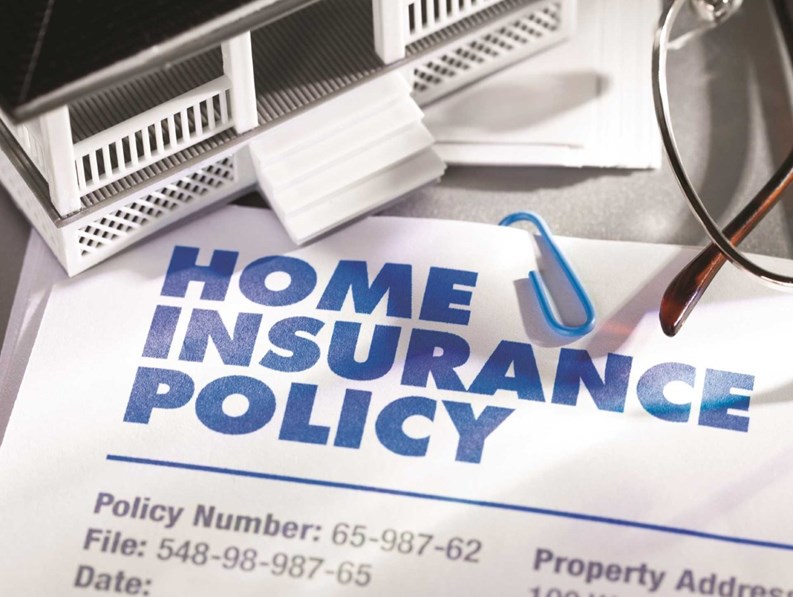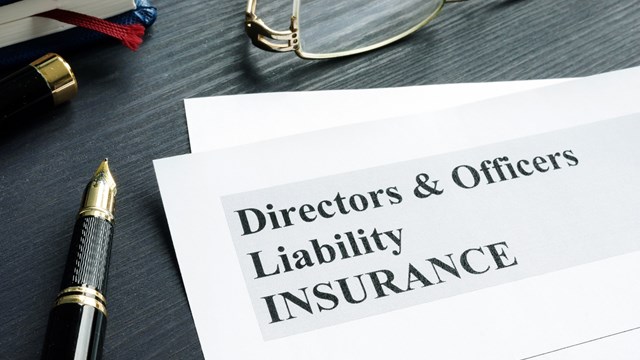Legendary funny man Benny Goodman once said, “I don’t want to tell you how much insurance I carry with the Prudential, but all I can say is: when I go, they go too!” The comedian hits on all-important issue: how much insurance is too much, and how much is not enough?
While individual residents of cooperatives and condominiums in New Jersey are encouraged to carry adequate coverage in case of a severe accident or catastrophe, their boards have a stake in their residents carrying adequate insurance as well.
Cover Yourself
While some condominium associations offer all-in coverage in their master policy, the vast majority require unit owners to carry a homeowner's policy as well. According to insurance industry blog www.InsureOurCondo.com, these insurance policies usually cover things like accidental discharge or overflow of water from your plumbing, fire and lightning, explosions, theft, vandalism and malicious mischief, sudden accidental damage from smoke, and so forth.
Unit owners and shareholders need to begin their road to homeowner's insurance by doing a little homework.
“First, homeowners need to go to the bylaws or proprietary lease because those tell the owner what they should buy as far as what they have to cover,” says Alan Schulman, president at Waldor & Schulman, an insurance brokerage in Livingston. “Is it a bare bones policy where they have to cover the sheetrock in? Some times the master policy will cover everything including kitchen cabinets and add-ins, all the homeowners needs to insure is their personal contents. It really depends on the building and they must read their documents.”
Matt McGill, a senior sales executive at The Chadler Group, an insurance agency in Fairfield, says that after determining what is the responsibility of the resident, it is crucial to do an inventory of the property and possessions to come up with a value for the contents and in addition, factor in any improvements and betterments that were made to the unit. “You have to take into consideration any changes that were made to the unit. The original condo may have had pine cabinets and you put in oak cabinets. The policy will only then cover the cost of the pine cabinets if there is damage. The exact amount is not an easy number to come about, but you need to know the value of what you have.”
Joseph Rice, president of The Rice Agency, an independent insurance agency in Somerville, says that he frequently encounters homeowners that do not do an accurate inventory of their possessions or complete any sort of inventory at all. “Homeowners, whether it's condo or co-op, don't really take stock of their possessions. They don't do any kind of given inventory, whether it be mental, photo or written. And if you ask them 'What is all your stuff worth?' you get a very blank look. If they had done an inventory, they may have done it many years ago, and the value of their possessions changed,” he says. Rice encourages homeowners not to skimp on costs, because the figures they provide for the insurance agency will affect the amount they will be reimbursed in the event of damage or a claim.
Schulman adds that residents should only be concerned with replacement costs and not market value. “You can have the same condo in Short Hills, New Jersey, and the same condo in Newark and they cost the same to replace but the market value is different. The insurance is only concerned with replacement costs. Just because you pay a lot more for something, doesn't mean you will get the same amount back if there is a loss.”
Decoding Insurance Policies
For board members, who also likely carry dwelling insurance, it is important they understand what exactly is covered by the association opposed to personal risk. Less an all-in coverage clause, common insurance coverage normally applies to common areas, the exterior of the building and energy equipment.
“Ideally there needs to be coordination between the association's policy and the unit owner's policy so that there are not gaps in coverage for something that the unit owner assumes is association property and vice versa,” says attorney Tom Pryor from the law firm of Stark & Stark, based in Lawrenceville.
Pryor continues to say that in addition to covering contents and any gaps in the association's policy, homeowner's insurance often covers additional living expenses coverage. “We've had cases where people are displaced from their unit for a year or two and they have to find another place to live, which can get really expensive.”
McGill also recommends that residents also have a loss assessment included in their homeowner's policy. “Loss assessment covers you for, let's say the condo association has been sued, and the damage exceeds the association's coverage, then they have the right to assess that claim and damages against all the homeowners.” For example if the building and commonly shared areas are destroyed by an insured disaster such as a tornado, the individual unit owner's loss assessment coverage would help pay for the share of these assessments.
Rice suggests a minimum of $50,000 limit of loss assessment which can greatly aid the homeowner should damage to the association occur.
Insurance Not Required?
In the state of New Jersey, homeowner's insurance is not a requirement for unit owners or shareholders but “in some communities the governing documents might provide that residents carry it,” says Pryor.
Condo and co-op experts note that unless specified in the bylaws or proprietary lease, boards are not allowed to know the insurance status of their residents. This lack of information however, could be problematic. “If the unit owners are uninsured or under insured at the very least, it could cause some problems for the association as a whole, because there are a lot of things that may not be fully covered under the master policy. We see the shortfalls of coverage of accounts that we inherit so it could be a matter of one party scuffling to see if they can make up the difference from the other. The ideal situation is to have one agent insuring the association, one agent writing as many of the unit owners as possible, and, if at all possible, everybody's with the same insurance carrier at any one moment,” says Rice.
He continues to say that although insurance companies do not necessarily look more favorably on buildings in which more of the residents are insured, they often want to know how many residents are before they write the building policy. Even so, Rice notes that insurance companies and lenders are altering their stance on requiring insurance. “Things are starting to change. I'm starting to see more demands and requirements in community living than I have in the past.” he says.
Renter’s Insurance
Often a unit owner may decide to rent or sublease for a period of time which raises additional questions with regard to insurance coverage and who is responsible. Mia Rodriguez, personal lines manager at The Rice Agency says that too often when residents decide to rent out their unit they don't even notify the insurance company, which is a big mistake. “They don't realize that the policy they have is based on a homeowner living there and they will need a completely different policy when they rent it out because of higher exposure,” she explains.
“Residents have to find a carrier that is willing to accept a condo policy that is rented out to others, that is a very important endorsement that needs to be added on. They can't just have a regular condo owner's policy,” adds Chris Gonzalez, general manager at Gonzalez & Company Insurance Agency, Inc. in North Bergen.
Residing in a unit versus renting it out slightly changes who is responsible in terms of insurance coverage. “The homeowner still needs to maintain coverage on the unit as a rental unit, which is different than if they are living there. Also, the tenant will have to make sure that they have their own renter's insurance for liability purposes as well as their own personal property such as clothing and electronics. The owner will still need to maintain insurance because the unit is deeded to them,” says McGill.
When renting out a unit to a tenant, it is important to have a personal injury endorsement added on says Gonzalez. Personal injury protects the policy holder from lawsuits filed because of alleged damage to an individual resulting from the invasion of privacy including damage to someone's character, violation of personal rights or invasion of space. He gives an example of a unit owner giving a showing of the unit and not giving the tenant enough notice. The tenant steps out of the shower to reveal more than they would like to the prospective and current residents. While this situation seems like a minor embarrassment, legal action could follow, costing the residents thousands of dollars. “Personal injury is different from personal liability coverage. Because now, in essence, the unit owner has become the landlord and the people who are renting out are the tenants, so there is a whole host of other issues that arise,” Gonzalez explains.
Industry experts agree that whether it is required or not, homeowner's insurance is an important investment for residents living in condominiums and cooperatives. It can provide the peace of mind and financial security for both boards and residents in case damage does occur.
W.B. King is a freelance writer and a frequent contributor to The New Jersey Cooperator. Editorial Assistant Maggie Puniewska contributed to this article.







Leave a Comment